 |
Driving TipYou're serious about the performance of your vehicle or fleet, as well as the performance of how you drive your vehicle or fleet. We share your passion, and want to help both you and your vehicle perform at their peak while keeping safety top of mind. |
 |
EngineAt times your car may need more then just a tradtional tune-up. Replacing spark plugs, timing belts, hoses and filters at intervals recommended in your owner's manual will help ensure peak performance. A technologoically advanced engine also requires a technologically advanced mechanic, so chose one with the right tools and technology to properly care for your vehicle. |
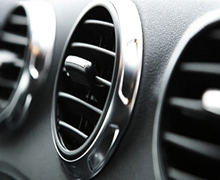 |
Air Filtration
Your car relies on clean air in order to run at optimal performance, and so do you. The best way to ensure both you and your engine get clean air is by replacing both the engine and cabin air filters as needed. If you live in an especially dusty area or frequently drive on dirt roads, you may need to change the filters more frequently.
Particles which are able to get past a dirty or old air filter and into the combustion chamber can cause premature engine wear and can decrease engine performance.
|
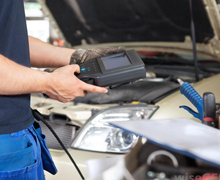 |
Transmission
Manual and automatic transmissions are not only different in the way they shift, but they're also different in the fluids they use. Manual transmissions require gear oil while automatics require specifically-designed fluids which operate under hydraulic pressure.
Although they operate differently, both transmissions share something in common – they need to have their oil and fluid changed regularly.
|
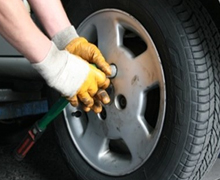 |
Tires
Incorrect pressure or worn tread can compromise fuel economy, cornering, braking and stability of your car. Excessive pressure can adversely affect driving comfort. Lack of pressure can cause overheating and premature tire wear. Remember to check the pressure regularly, on all four tires, preferably when the tires are cold.
Check the sticker on the driver’s side door jamb for tire pressure information or your owner’s manual. To extend the life of your tires, rotate them according to the intervals recommended by the car’s manufacturer.
|
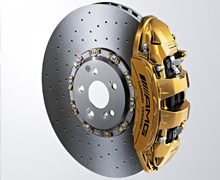 |
Brakes
Both disc and drum brakes slow your car by creating friction, which causes brake pads and shoes to wear. Being able to stop safely and quickly is one of the most important safety aspects of your car, so properly maintaining your braking system is a top priority.
If your brake warning light is flashing, or you hear squealing or grinding noises, feel the steering wheel shake, observe a soft brake pedal or require stopping distances longer than normal, have a qualified technician look at your car immediately.
|
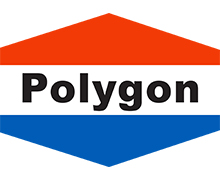 |
The Right Oil
Lower quality gasoline can leave behind harmful deposits which can cause power loss, reduced fuel economy, increased emissions and engine knock in certain engines. Higher quality fuels against these harmful deposits and helps to clean up deposits left behind by lower quality fuel, restoring lost engine performance while minimizing emissions.
Equally important to choosing a high quality gasoline is choosing the right grade of high quality fuel. Always consult your owner's manual for the grade of gasoline recommended to optimize your engine's performance. Never use a grade of gasoline with lower octane than what is recommended by the owner's manual.
|
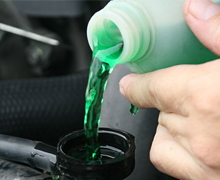 |
Coolant
Coolant, or antifreeze, keeps your engine from overheating in the summertime as well as prevents your cooling system from freezing in the wintertime. It absorbs heat from the engine and helps prevent buildup in the cooling system. Check its level periodically and have it changed as recommended by your owner's manual.
Always add coolant by using the plastic overflow reservoir. It has maximum and minimum marker levels, and should only be at the maximum level when the engine is hot. Never add coolant by removing the radiator cap, especially when the engine is hot. The coolant is pressurized and can shoot out at near scalding temperatures with the potential to cause serious injury to anyone nearby.
|